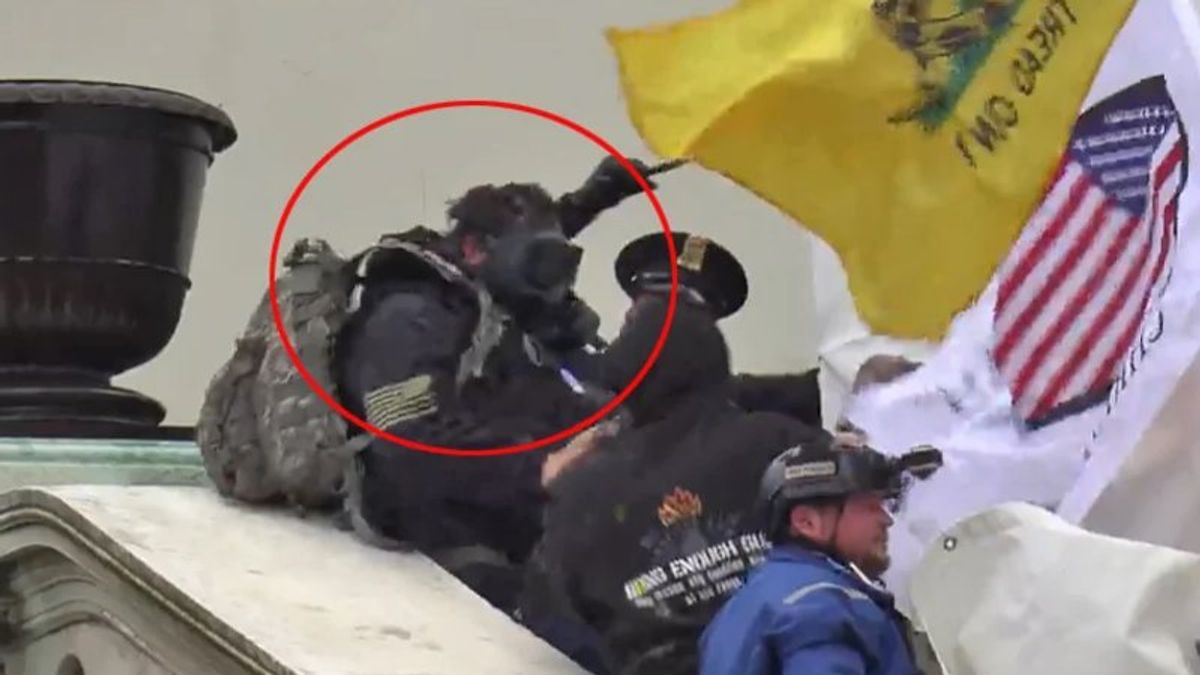
The proceedings in a Jan. 6 trial were briefly halted on Tuesday after prosecutors started asking a witness to name individuals who entered the Capitol building.
In defense of accused Jan. 6 attacker Christopher Alberts, lawyers called David Sumrall, who runs a website raising money for the defendants. The problem with putting someone who knows the Jan. 6 defendants on the stand is that it allowed prosecutors to ask specifics about the others in the Capitol on Jan. 6, reported Politico.
“I don’t think it’s my job to doxx people,” Sumrall dodged.
Alberts was accused of bringing a gun on Capitol grounds. He faces several felony charges, including civil disorder and assaulting, resisting or impeding certain officers, NBC News reported.
IN OTHER NEWS: Kremlin agents meddled in Florida election with eyes on presidential race: indictment
Assistant U.S. Attorney Jordan Konig pressed Sumrall on identifying witnesses and others who were in the Capitol but who hadn't yet been apprehended by law enforcement and charged. An answer may have incriminated his associates and Sumrall grew agitated, said Politico.
Alberts' attorney Roger Roots stepped in and U.S. District Court Judge Christopher Cooper called for a break so that they could debate the issue. Cooper claimed he was blindsided by the line of questioning, saying it was "unorthodox" and a "fairly unique situation."
Roots was furious, saying that it allowed prosecutors to turn Sumrall into a “cheese-eating rat” and “a snitch on the stand.” He said that the prosecutors were playing "FBI" and humiliating Sumrall in front of the jury.
“This is so outrageous,” Roots proclaimed, according to the report.
According to Konig, the fact that Sumrall wouldn't answer reveals a lot about his credibility. His ties to Jan. 6 show his bias, the prosecutor argued.
He cited a 2019 case in Colorado in which a federal judge ordered a defendant to respond to questions about identifying others who refused to pay their taxes. Another 2019 case in Nevada asked a defendant to name other tax dodgers, including a person that was in the courtroom. So, the idea of naming names isn't unprecedented, he said.




